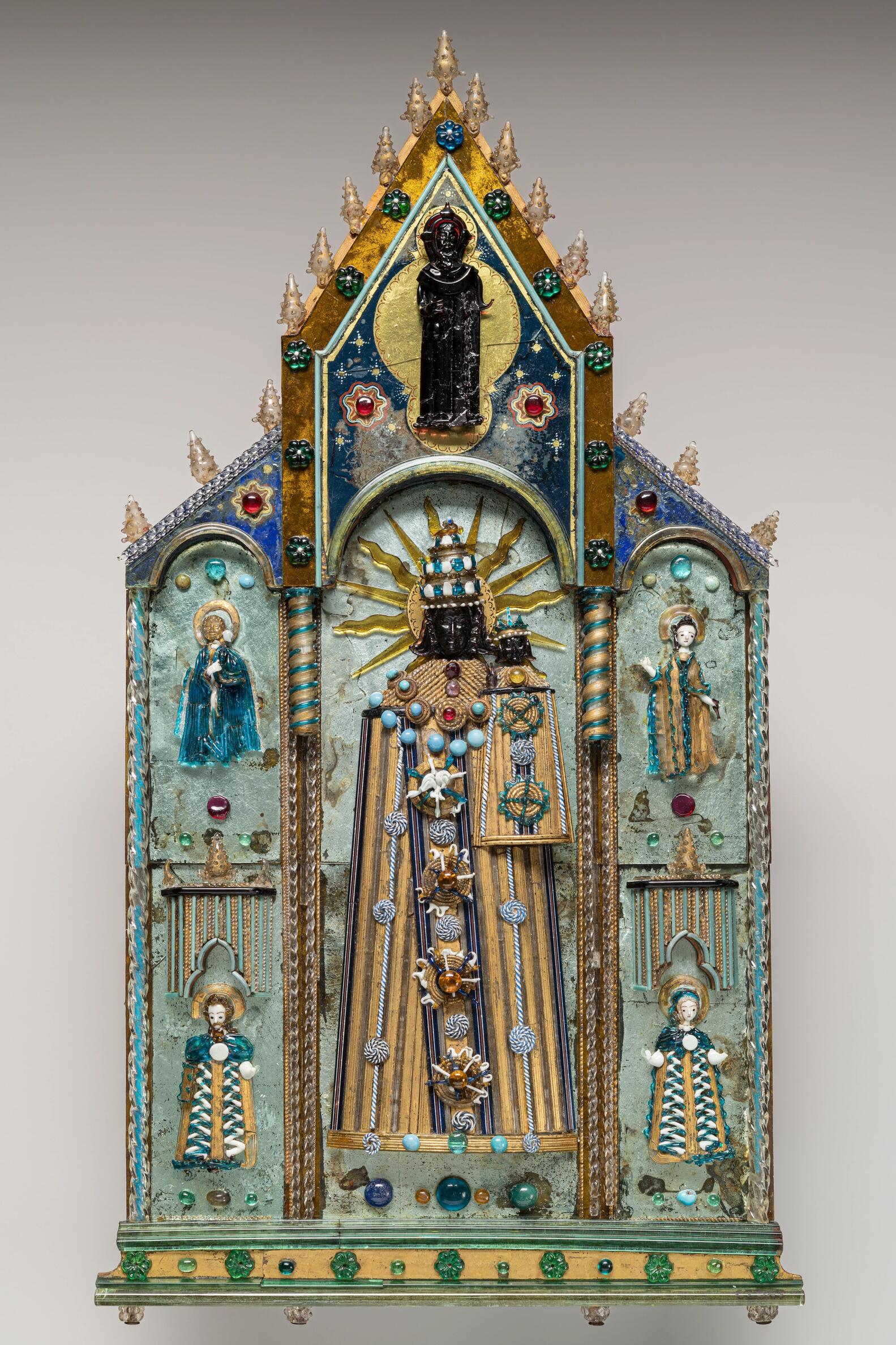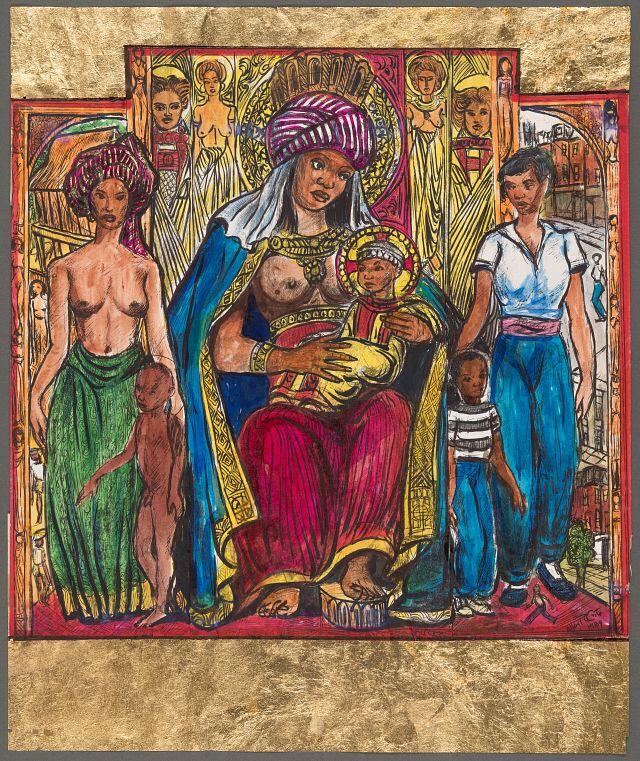

Visions of Black Madonnas
October 23, 2025 – January 19, 2026
Closing January 19, 2026
Fenway Gallery
Mary, the mother of Jesus, has appeared as a Black woman across different times, cultures, and geographies. These images, known as Black Madonnas in the Christian visual tradition, portray the Virgin Mary with dark skin for varying and evolving reasons—whether a consequence of prayerful touch and candle smoke or to assert the holiness of people of color. The exhibition Visions of Black Madonnas was born from an encounter between one artist and a particular 400-year-old devotional work.
The Black Glass Madonna (1570–1591) at the Isabella Stewart Gardner Museum was commissioned by Archduke Ferdinand II of Austria in the 1500s as a testament to his personal devotion to the dark-skinned, miracle-working Madonna of Loreto. Four centuries later, Boston artist Allan Rohan Crite (1910–2007) saw this piece regularly while visiting the Gardner Museum. A devout Episcopalian, he made dozens of his own Black Madonnas that exalted Black people, particularly Black mothers.
In juxtaposing these works, Visions of Black Madonnas examines varying motivations for presenting the Holy Family as Black, and especially casts light on how Crite’s choice to create images of dark-skinned Madonnas glorified his diverse community.
Image Credit
Innsbruck Court Glassworks (active Innsbruck, 1570-1591), Black Glass Madonna, 1570-1591. Lampworked and pressed glass on wood mount, 52.5 x 28.8 cm (20 11/16 x 11 5/16 in.) Isabella Stewart Gardner Museum, Boston
Explore Other Exhibitions


Robert T. Freeman: Allan Crite - American Griot, 2025
Anne H. Fitzpatrick Façade
October 14, 2025 – February 10, 2026
Visions of Black Madonnas is supported in part by Barbara and Amos Hostetter, the Abrams Foundation, the Barr Foundation, the Henry Luce Foundation, the Ford Foundation, The ’Quin House Impact Fund, the Wyeth Foundation for American Art, and Fredericka and Howard Stevenson. Endowment support is provided by the Mellon Foundation, the National Endowment for the Humanities, and The Tom and Katherine Stemberg Fund for Exhibitions and Programs.











